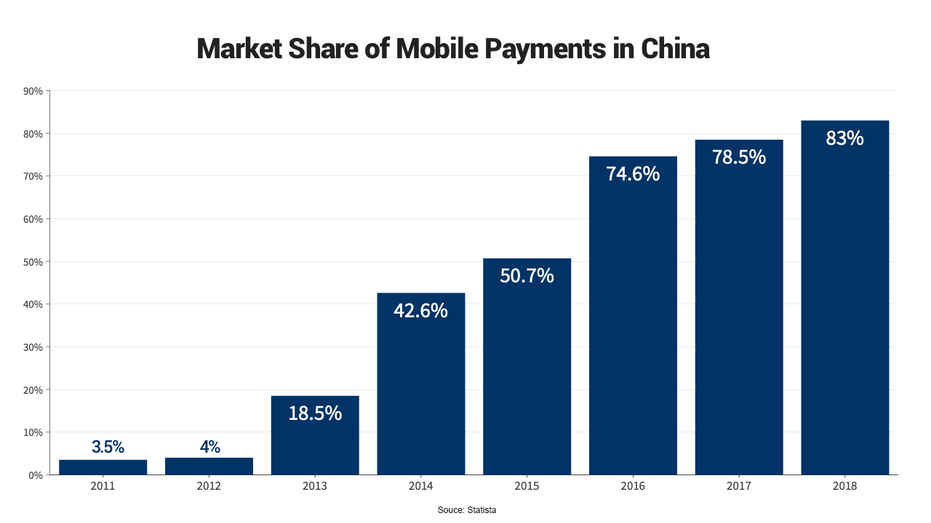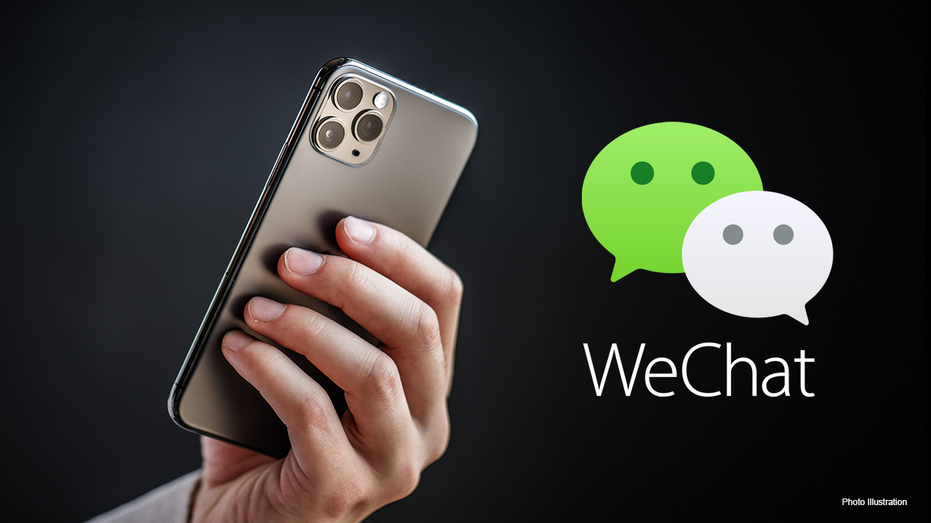WeChat ban endangers US businesses in China
Mobile payments made up 83% of all purchases in China in 2018
With time running out for Bytedance Inc. to sell social media app TikTok's U.S operations or have them shut down, American firms operating in China are focusing on a potentially far more devastating ban targeting mobile-payment app WeChat.
“Think of the U.S. society if you suddenly eliminated credit cards,” said Viktor Shvets, managing director at Macquarie Securities in Hong Kong.
Mobile payments have become engrained in Chinese society, where credit cards never really caught on. An estimated 83% of all payments in China in 2018 were made via mobile phone apps. About 92% of the business is split between WeChat, owned by Tecent Holdings, and Alibaba’s Alipay.

Over a dozen U.S. companies, including Apple Inc., Walmart Inc. and Walt Disney Co., last month held a call with the Trump administration to express their concerns about a vague executive order that bans transactions with Tencent and is set to take effect on Sept. 20 -- which is also the deadline ByteDance must meet to secure a U.S. TikTok sale before the Trump administration shuts it down.
The Commerce Department did not respond to FOX Business’ request for more information.
TIKTOK, US DISCUSS WAYS TO AVOID SALE
Trump is concerned that both apps capture large swaths of data from users and allow the Chinese Communist Party to compile personal and proprietary information on Americans.
For any companies operating in the country, however, mobile payment apps are their lifeblood.
A U.S. ban on WeChat “would be simply devastating,” Ker Gibbs, president of the American Chamber of Commerce in Shanghai, told FOX Business. “It's hard to see how some of these American companies could survive in this market without being able to use WeChat payments.”

The immediate impact would be lost sales for companies like Nike as customers who couldn’t use their preferred payment method would respond by taking their business to rivals such as Adidas, based in Germany.
But there is also the possibility that a ban from the Trump administration would cause companies domiciled outside the U.S. whose applications ride on the WeChat system to stop using the app in fear of secondary sanctions.
WeChat, which allows Chinese citizens outside the country to stay in touch with friends and family back home, can also be used for services as varied as hailing cabs and taking out mortgages.
TRUMP EYES 'DECOUPLING' FROM CHINA
Such considerations are why the Trump administration could end up providing some exclusions, hoping to thread the needle between national security and commercial reality.
Apps like WeChat, which had 1.17 billion monthly active users at the end of 2019, the vast majority of which were in China, are the reason why the country sees approximately 20 times the number of mobile transactions as the U.S., giving it access to more data and a leg up in artificial intelligence research.
CLICK HERE TO READ MORE ON FOX BUSINESS
“If China is accumulating a lot more data without the same privacy restrictions that apply to the West, then theoretically, they can pursue artificial intelligence much more aggressively than other Western countries,” Shvets said. “So it doesn't just have surveillance applications. It also has privacy implications.”




















